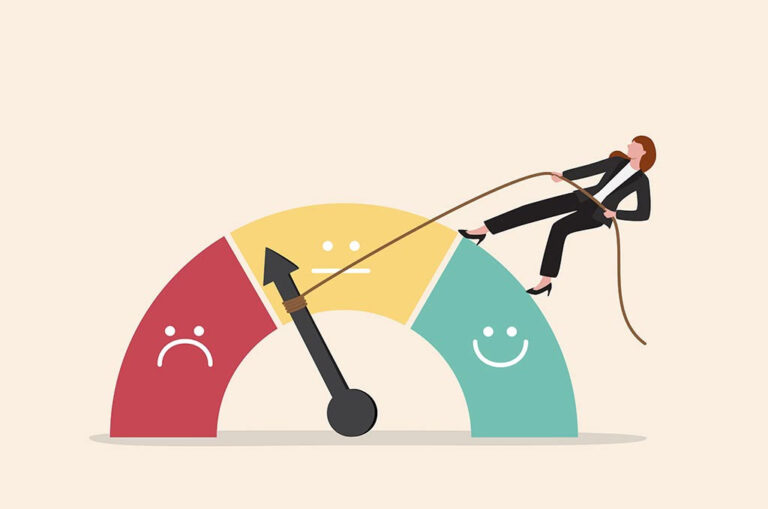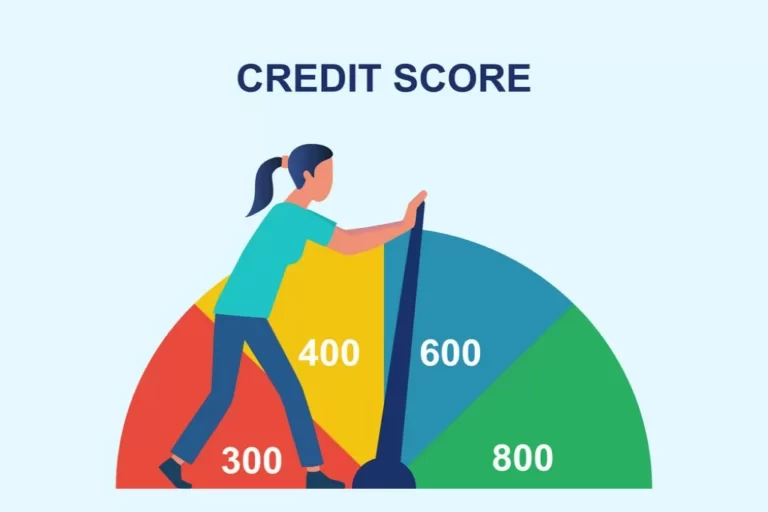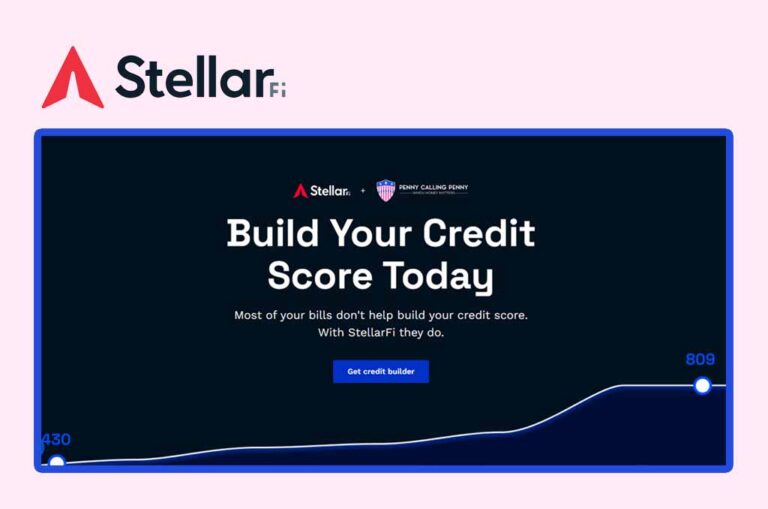Your credit score is that number on your credit report that tells lenders whether you’re a good credit risk. The higher your score, the better it is for you when borrowing money and getting approved for things like mortgages and car loans. You are in a situation today where you are going to apply for a loan, either for a mortgage, a car, or a credit card.
You are having the headache that your current credit score will cause you to be turned down for a loan, your interest rate will be unnecessarily high, or you won’t get the amount of money you requested. So, you need to boost your credit score today. And here is how you can do that.
But first let’s understand the importance of a Good Credit Score
Having a solid credit score is like having a golden ticket in the financial world. It’s your passport to getting loans, mortgages, and credit cards with favorable terms. It’s like having a strong shield that protects your financial reputation and opens doors to better opportunities.
Common Misconceptions About Improving Credit Scores Quickly
Some folks think that boosting a credit score overnight is like waving a magic wand. But in reality, it’s more like building a sturdy house—it takes time, effort, and the right tools. Quick fixes often come with risks and may not provide lasting benefits.
Factors That Affect Your Credit Score
1. Payment History: This is like your track record of paying bills on time. A consistent history of on-time payments boosts your score.
2. Credit Utilization: Imagine your credit limit as a pizza. Using too much of that pizza (high credit utilization) can hurt your score. Aim to keep it below 30%.
3. Length Of Credit History: The longer you’ve been responsibly managing credit, the better. It shows lenders that you have experience handling financial responsibilities.
4. Credit Mix: Having a variety of credit types (like credit cards, loans, and mortgages) can show that you can handle different financial obligations.
5. New Credit Inquiries: Applying for multiple new credit accounts in a short period can raise red flags. It’s like trying to juggle too many balls at once—it can be risky.
Best Ways To Boost Your Credit Score Overnight
Read Your Credit Score Report
Experian offer free credit score reports, and you need to contact one of them to get a look at yours. Why? Because your credit report can have errors. It happens. Perhaps you have paid off a loan or credit card that has not been in the records. Possibly some information is severely out-of-date.
The worse part is it’s feasible that someone else’s information has been aligned with your credit score. Once you read your credit report, and if there are errors, those companies have a process by which you can amend your credit report. You can improve your credit score by as much as 100 points if there are mistakes.
Pay Off A Credit Card
Credit reports include information about your credit utilization. That is the percentage of the money you have available in loans, including credit cards, versus the amount you have used.
If you have a credit card with a $10,000 limit and your balance is $3,000, your credit utilization on that card is 30 percent. Thirty percent is known to be the high end of credit utilization that lenders want to see.
Best Websites To Check and Build Your Credit Score
How Do You Reduce Your Credit Utilization Percentage?
(i) Reduce the balances on cards where your credit utilization percentage is high.
(ii) Request a higher credit limit: You don’t want to use the money extended to you with a higher credit limit. You want to lower the percentage of available money versus the amount you have used. Credit card companies will increase your limit if you have a good history of paying the minimum due.
Make A Plan

Your need for a higher credit score is immediate, but you still have to plan to make the changes that are going to get you a higher credit score. Go over all of your loans – from banks or credit cards – and determine a way to reduce balances on all loans beyond the minimum due.
Any loan you can pay off faster – with multiple monthly payments, perhaps – will improve your credit score.
An Easy Ask
If you are close to someone with a high credit score and no real financial problems, ask them to make you an authorized user on one of their credit cards, especially one with a high credit limit.
You can tell your friend or family member you will never use the account – don’t ask for a card, don’t put the number into any of your digital pay accounts – but you will be reported to credit agencies as an authorized user on a high credit limit account will increase your available credit against your credit used, decreasing your credit utilization number.
Get Points For Rent and Utility Payment
People who have a mortgage and make their monthly payments get credit for doing so. People who pay a rent bill on time every month only get credit if they ask. They do get penalized if they miss rent payments, however.
There are rent reporting services you can contact that will send your rent payment history to credit report companies. The use of rent reporting varies depending on the credit report company, but lenders often go beyond the Big Three to look at your credit history.
Improve Your Bottom Line
“I would pay off my credit card balances if I had more money to do so,” you say. Well, you can do so in two ways:-
(i) Sell Something
We live in a world where the internet is a personal marketplace. You have stuff you don’t need anymore that someone else might want.
(ii) Consolidate Your Credit
Credit card companies offer consolidation loans to reduce the number of cards you have to send a minimum payment to in a month.
If the math works – the consolidation loan interest rate is lower than what you pay on your current credit cards – then it is wise. However, consolidation loans often have a massive jump in interest rate after an initial period (one or two years, perhaps), and you will want to reduce that balance as much as possible.
Keep Credit Card Balances Low
Aim to keep your credit card balances as low as possible, ideally below 30% of your available credit limit. High credit card utilization can negatively impact your credit score, so paying down your balances can have a positive effect.
Avoid Closing Unused Credit Accounts
Closing old or unused credit accounts may seem like a good idea, but it can actually lower your available credit and potentially increase your credit utilization ratio. Instead, consider keeping those accounts open to maintain a longer credit history and a lower utilization ratio.
Diversify Your Credit Mix
Having a mix of different types of credit, such as credit cards, loans, and a mortgage, can positively impact your credit score. Lenders like to see responsible management of various types of credit, so consider diversifying your credit portfolio if it makes sense for your financial situation.
Correct Errors On Your Credit Report
Regularly review your credit reports for any errors or inaccuracies that could be negatively impacting your credit score. If you spot any mistakes, such as incorrect personal information or accounts that don’t belong to you, dispute them with the credit bureaus to have them corrected.
Be Mindful Of Credit Applications
Applying for new credit can result in a hard inquiry on your credit report, which can temporarily lower your credit score. Limit unnecessary credit applications and only apply for credit when you genuinely need it.
Maintain A Positive Payment History
Consistently paying your bills on time is crucial for maintaining a good credit score. Late payments can significantly impact your credit, so make it a priority to pay your bills by their due dates.
Manage Debt Responsibly
Keeping your overall debt levels under control is important for your credit score. Avoid accumulating excessive debt and focus on managing your existing debts effectively, making regular payments and reducing outstanding balances.
Tips For Maintaining A Good Credit Score
1. Pay Bills On Time
This is the golden rule of credit scoring. It’s like watering your plants regularly—neglect them, and they’ll wither. Set reminders, automate payments, do whatever it takes to keep those bills paid on time.
2. Keep Credit Card Balances Low
Imagine your credit card balance as a backpack. Carrying too much weight (high balances) can slow you down. Try to pay off balances in full or at least keep them well below the credit limit.
3. Avoid Opening Multiple New Accounts At Once
Opening too many accounts in a short period can be like overloading your plate at a buffet. It might seem tempting, but it can lead to indigestion (financial strain). Pace yourself and only open new accounts when necessary.
4. Monitor Your Credit Regularly
Think of monitoring your credit like checking your rearview mirror while driving. It helps you spot potential issues early and take corrective action.
Get Help
StellarFi is a comprehensive financial management platform that offers a range of tools and resources to help individuals and businesses navigate their financial journeys effectively. With features like personalized credit score improvement strategies, budget management tools, and financial planning resources, StellarFi empowers users to make informed decisions and achieve their financial goals.
Additionally, StellarFi provides educational materials and dedicated customer support to ensure that users have the knowledge and assistance they need to succeed financially. To know more about what StellarFi can do for your credit score, read our detailed StellarFi Review.
Conclusion
Boosting your credit score overnight may seem appealing, but it’s important to remember that genuine and lasting improvements take time. Instead, focus on implementing smart financial habits, paying bills on time, reducing debt, and maintaining a healthy credit utilization ratio.
With consistent effort and responsible financial management, you’ll witness a gradual increase in your credit score, leading to long-term financial stability. Remember, patience and persistence are essential for improving your creditworthiness.
FAQs
How can I increase my credit score overnight?
It is important to note that credit scores do not typically change drastically overnight. However, there are a few steps you can take that may have a positive impact in the short term:-
(i) Pay down credit card balances: Lowering your credit utilization ratio by reducing the amount of credit you’re using can help boost your score.
(ii) Correct errors on your credit report: If you spot any errors or inaccuracies on your credit report, dispute them with the credit bureaus to have them corrected.
(iii) Become an authorized user: If someone with good credit is willing to add you as an authorized user on their credit card, their positive payment history can potentially benefit your credit score.
How to get your credit score up 100 points in 30 days?
While a 100-point increase in just 30 days is unlikely, there are steps you can take to steadily improve your credit score over time:-
(i) Pay your bills on time: Consistently making on-time payments is one of the most effective ways to improve your credit score.
(ii) Reduce credit card balances: Aim to lower your credit utilization ratio by paying down credit card debt.
(iii) Dispute errors on your credit report: Review your credit reports for any inaccuracies and file disputes to have them corrected.
(iv) Avoid new credit applications: Limit applying for new credit, as too many inquiries can temporarily lower your score.
How can I raise my credit score 50 points fast?
While everyone’s credit situation is unique, here are some general steps that can help improve your credit score relatively quickly:-
(i) Make timely payments: Pay all your bills on time, as payment history has a significant impact on your credit score.
(ii) Reduce credit card balances: Aim to lower your credit utilization ratio by paying down credit card debt.
(iii) Check for errors: Regularly review your credit reports and dispute any errors or inaccuracies you find.
(iv) Maintain older accounts: Keep your oldest credit accounts open, as the length of your credit history can positively impact your score.
What is the fastest way to boost your credit score?
While there is no guaranteed “fast” way to boost your credit score, the most effective strategies involve responsible financial habits and patience:-
(i) Pay bills on time: Consistently making on-time payments is crucial for improving your credit score.
(ii) Reduce credit card debt: Lowering your credit utilization ratio by paying down credit card balances can have a positive impact.
(iii) Correct inaccuracies: Regularly review your credit reports and dispute any errors or discrepancies you find.
(iv) Maintain a healthy credit mix: Having a good mix of different types of credit (such as credit cards and installment loans) can be beneficial for your credit score.










